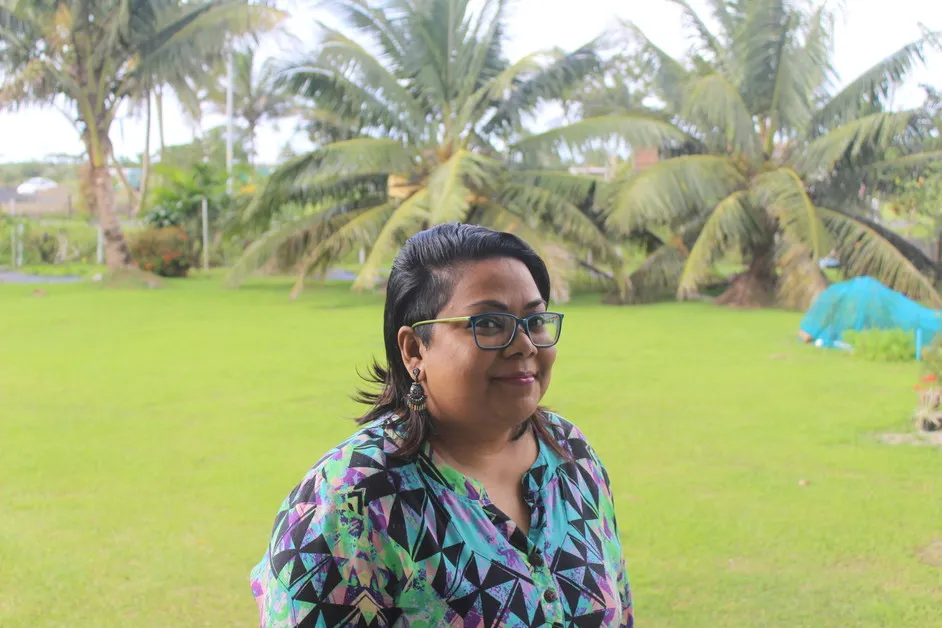Trigger warning: this blog contains information that may be distressing to survivors of gender-based or sexual violence.
Women living on the island nation of Fiji are no stranger to disasters: from cyclones to COVID-19, they face many challenges which put them at risk.
CARE’s Shirleen Ali is helping tackle another hidden crisis which has increased dramatically in the past year — gender-based violence.
“Even before the coronavirus spread here, Fiji already had one of the highest rates of gender-based violence in the Pacific, and the Women’s Crisis Centre support line has reported a 300 per cent increase in calls since the pandemic lockdowns were put in place,” says Shirleen.
Shirleen is acutely aware of the devastating impact of violence against women — one of her closest friends was murdered by her partner. She has spent many years working to make women safer, so she is very aware of how important local support services can be to women in vulnerable situations.
“COVID is making the situation for women so much worse… In the wake of a crisis like this, a woman’s best source of help, and her best coping mechanism, is her support network — and COVID has cut off that access.”
Despite being terrified of catching COVID-19, Shirleen continues to work with organisations in Fiji to make sure their emergency response to the pandemic takes into account the many ways women and other vulnerable people may be at risk. Through Shirleen, CARE is ensuring those in even the most remote locations know they are not alone.
“Organisations like CARE ensure that even when responders are just distributing a tarp, or a WASH [water, sanitation and hygiene] kit, they are weaving in awareness and interventions around gender-based violence, so that rural and remote women and girls are able to safely access services and support systems to help them survive and escape their situation,” say Shirleen.
Why is Shirleen’s role so important? CARE believes one of the most effective ways to protect women from violence is to work directly with those who understand the situation on the ground—such as our partners in Fiji the Rainbow Pride Foundation and the Fiji Disabled People’s Federation .
“They are able to work with all genders and weave sensitive topics into the conversation, and they know who to report it to, who to refer the survivors to,” says Shirleen. “Their local knowledge of the community is vital to the success of their work… They are the best people for the job.”
Shirleen dreams of a day when her work is no longer needed. But until then, she vows to keep fighting inequality to make the world safer for women.
“My life’s goal is to keep doing my work until I make myself redundant one day when all genders have the same opportunities and are treated equally by society. That would be amazing. But we are still very far off from that day.”

